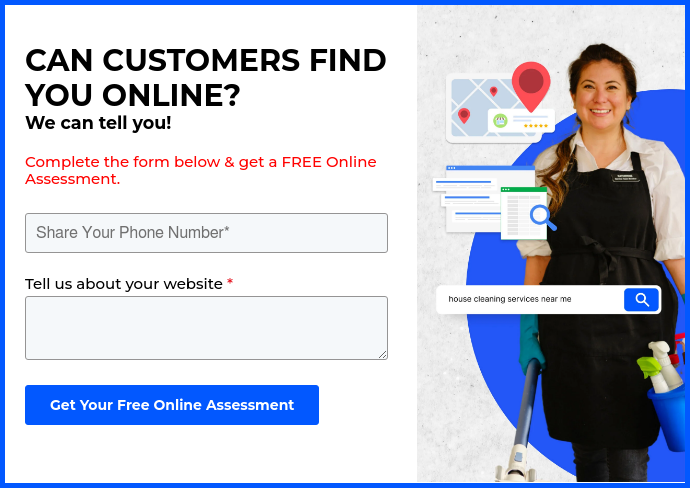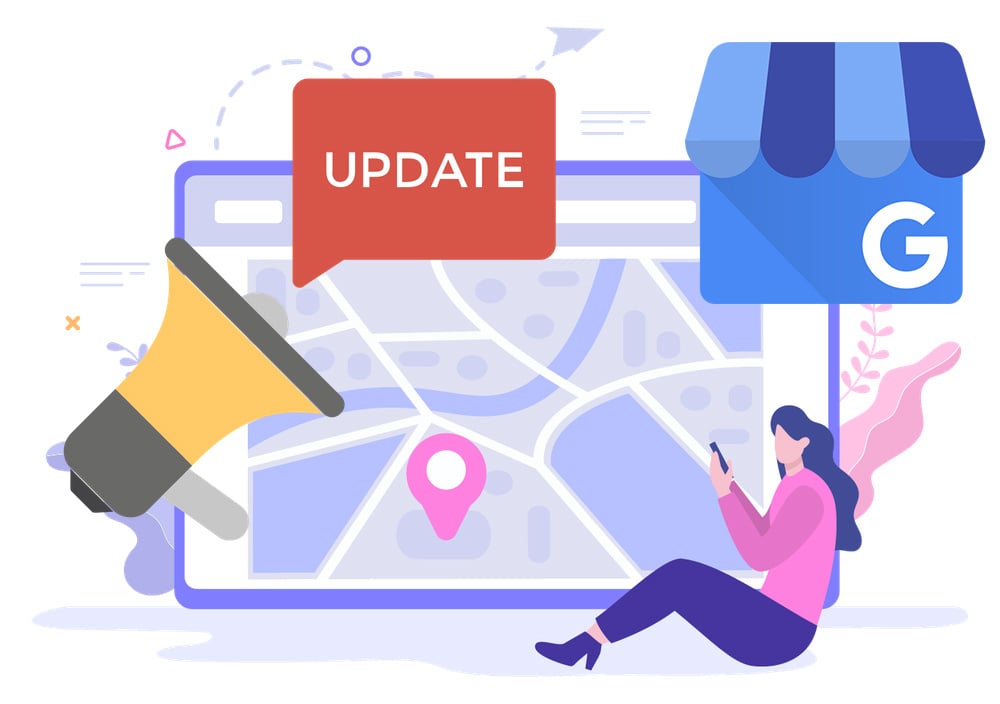10 Challenges of Small Business Accounting
Small businesses can deal with a multitude of challenges. Find out the most common challenges of small business accounting here.

We've all been there. It's the end of the month, and you're side-eyeing the ramshackle stack of receipts and loose papers on your desk, just waiting to be recorded. Whether you keep your books yourself or use an accountant, the challenges of small business accounting may seem overwhelming, especially when you have so many other demands.
According to the US Small Business Administration, small business sales comprise 99.9% of all business conducted in 2022. Yet, despite their economic contributions, many owners and operators need help managing their finances.
The truth is, accurate accounting is essential for any service provider. After all, “it’s all about the numbers.”
If you're looking for ways to ensure your books are in order and keep pace with the ever-evolving demands of running a small business, you've come to the right place.
Jump to:
-
What Is Small Business Accounting?
-
Accounting Challenges that Small Business Owners Face
-
How To Combat Challenges
-
In Conclusion

What Is Small Business Accounting?
In its broadest terms, small business accounting can be described as the financial processes and systems used to measure, report and analyze the performance of your business. This includes tracking income, expenses, assets, liabilities, and other important financial information.

Source: Patriot Software
For home services businesses like electricians or landscapers, it's vital to understand how accounting can help you grow your business.
With the help of an efficient system for managing accounts receivables and payables, you can ensure payments are received on time and manage your cash flow more effectively.
However, many challenges come with running a small business, and accounting can be complicated for some service providers.
Accounting Challenges that Small Business Owners Face
In business, knowledge is power and can distinguish between success and failure. Specifically, accounting knowledge is essential to running your business, in that it keeps your costs, sales, and profits in front of you at all times. But the obvious benefits come at a cost to your same (and sanity). Here are hurdles that most owner-operators are experiencing that impact their ability to maintain air-tight bookkeeping.
1. Irregular Cash Flow
In small businesses, irregular cash flow can be a significant challenge. Cash flow is the lifeblood of home service providers. Without it, you won’t have enough money to cover expenses like payroll and supplies.
To make matters worse, local service businesses experience uneven cash flows due to seasonal fluctuations in demand or unexpected slow periods. Managing irregular cash flow can be difficult, but some strategies can help ensure your company stays afloat during lean times.
One key strategy is to have a good handle on your budgeting and forecasting for both short-term and long-term needs. Establishing an emergency fund and planning for slow periods can help you remain financially stable and keep cash flow positive even during tough times.
Or, you could take stock of your skills to see if you’re able to offer a wider selection of services that allow you to generate sales during traditionally slow periods.
2. Limited Financial and Accounting Knowledge
Many small business owners-operators struggle when it comes to accounting and financial management. After all, for many home services providers like handymen or plumbers, accounting isn’t their primary focus.
Whether you’re just starting or have been serving your community for some time, there are a few fundamental principles to know about financial and accounting best practices.
Cash vs accrual accounting
One of the biggest challenges for home service operators is understanding the difference between cash and accrual accounting.
Cash accounting
Cash accounting is the simplest form of accounting, and is best suited for small businesses with low transaction volumes (like handymen or local service businesses). With cash accounting, income and expenses are recorded when cash is received or paid out, which keeps things simple.
Accrual accounting
Accrual accounting is a more complex accounting system best suited for larger businesses with high transaction volumes. With accrual accounting, income and expenses are recorded when they are earned or incurred, regardless of when the cash is received or paid.
The confusing bit here is that "earn" and "incur" are separate from actual dollars changing hands. For instance, you'd count the revenue when you send out an invoice, not when the customer pays it. Or, if you pay for a service now, but you won't utilize it until later, you'd record the expense when you paid it, not when you actually used it.
3. Payroll Management
Payroll management is essential in keeping your finances organized and compliant with applicable laws. It involves tracking hours worked, calculating wages, withholding taxes, and issuing paychecks or direct deposits.
Efficient payroll processes ensure that employees are paid accurately and on time and in accordance with federal, state, and municipal labor laws, taxes, and benefits. This helps foster trust between employers and employees while protecting your company from costly lawsuits due to wage or employment law violations.
Naturally, this can be tough to do on your own - which is why many businesses choose to get help with their payroll management. Onboarding the right payroll service provider can save you a lot of time, money, and stress, while also providing you with a range of additional features and benefits.
4. Tracking Business Expenses
Tracking business expenses is crucial to running any small business. Business owners need to understand their income and expenses to effectively manage their finances and make informed decisions about the future of their company.
Keeping track of all your transactions allows you to accurately calculate taxes for filing purposes and determine profitability or areas in which you may be overspending. It can be difficult for small business owners to get into the habit of recording every expense, which is why staying organized from the start is essential.
5. Bank Reconciliation
Bank reconciliation matches transactions on a business's bank statement to those in its accounting system, (i.e.QuickBooks transactions). This helps ensure that all cash inflows and outflows are accurately recorded and accounted for.
This accuracy can be crucial for small business owners-operators, who might need more resources or time to monitor their finances closely. Without reconciling your transactions between your bank statements and accounting/bookkeeping software, you could miss a large expense come tax season, overdraw your account, or worse.

Source: Universal CPA Review
For example, suppose a customer pays an invoice by check but deposits it into your account later than expected due to postal delays or other external factors. In that case, this discrepancy will be visible during the reconciliation process. This discrepancy might have gone unnoticed without reconciling your accounts regularly, resulting in incorrect records and financial reports.
6. Inadequate Use of Business Accounting Software
First off, we strongly encourage you to use accounting software, if you’re not already doing so. Tracking your transactions manually is simply way too much of a burden if you hope to have enough time to serve customers and grow your business.
Everywhere you look online, you will see ads for software designed to care for all your accounting needs. But there's a catch. You have to know how to use it. And while most owner-operators can figure the basics out on their own, it’s important to invest some time to get comfortable with the technology you chose.
Business accounting software is designed to help small business owners and operators keep track of their finances, automate the financial process and provide accurate records for tax purposes.
It’s important because it helps you understand your cash flow, budgeting, forecasting, managing invoices, payroll processing, and reporting.

Source: Canale Tax & Accounting
To ensure that you’re getting the most out of your accounting software, take some time to research different options before making a decision. The ROI is well worth it – spending a few hours upfront to identify which platform is right for you can save you thousands of dollars per month later on.
Finally, don’t forget to back up your data regularly to protect yourself if something goes wrong!
What’s the Difference Between Accounting Software and an Invoice-Payment Tool?
For many small businesses, there’s often confusion between accounting software and an online invoice payment tool. While these two solutions may have some overlap, there’s a difference.
Accounting software is usually a comprehensive solution that helps you manage most (or all) aspects of financial data in your business. It generally includes income tracking, expense tracking, budgeting, and forecasting capabilities, generating reports for taxes and other reporting requirements, and recording transactions from various sources like bank accounts or credit cards into the system. Hence, you have a single source of truth for all your financial activity. Its primary goal is helping you remain IRS compliant and maintain strong financial records.
On the other hand, an online invoice payment tool is primarily used to expedite customer payments (making it super simple for customers to pay, giving them multiple ways to pay, and getting that money into your business account faster). This type of software allows you to create and send invoices for services rendered quickly, track invoice payment status in real-time, and manage customer information so that you’re able to streamline billing processes. Its basic function is making it as easy as possible for you and your customers to pay you quickly and boost cash flow.
For example, a local handyman might use accounting software to track his income and expenses related to running his business while using an online invoice payment tool to generate professional invoices and securely accept customer payments quickly.
7. Mistakes in Tax Filing and Audit
Mistakes in your tax filings or audits can lead to serious consequences - from hefty fines to even criminal charges.
For instance, if you fail to report income correctly on your tax return, the IRS may initiate an audit, and they might discover unreported income along with additional taxes owed. Additionally, mistakes in filing quarterly estimates could result in penalties for underpayment of estimated taxes or late filing fees.
Tax mistakes occur as a result of poor bookkeeping, improper filing, or both. Subscriptions like TurboTax can help you file properly, but they can’t remedy bad expenses and sales tracking. That’s why seeking help from an accountant is good protection for your business against audits and penalties.
8. Delayed Accounts Receivables
Delayed accounts receivable is a common challenge of small business accounting. It occurs when customers take too long to pay for goods and services that have already been provided, resulting in cash flow problems for the business.
Delayed accounts receivable can be especially difficult for home service providers like cleaners, movers, and locksmiths, who are often paid at the end of their job or complete multiple jobs over an extended period. This delay can make it hard to keep up with costs such as payroll and materials needed for upcoming tasks.
Tax mistakes occur as a result of poor bookkeeping, improper filing, or both. Subscriptions like TurboTax can help you file properly, but they can’t remedy bad expenses and sales tracking. That’s why seeking help from an accountant is good protection for your business against audits and penalties.
9. Delayed Accounts Payable
Delayed accounts payable (AP) is an issue that many owners-operators face. Put simply; it's when you don't pay your bills on time or are late in sending invoices to customers for payment. It’s essential to understand why this happens because if not managed correctly, it could cost your business money and even damage relationships with suppliers and customers.
To help explain delayed accounts payable, let’s look at an example. Suppose you have a busy season and don't have enough time to process customer invoices. You send out the bills, but because of your workload, you cannot follow up on them quickly or track when they are due.
This means that some of your customers may not pay in full or on time. As a result, it can lead to cash flow problems and late payment fees from suppliers, which can be very costly if left unchecked.
10. Forgetting to Save Financial Records
Just like it sounds, this challenge is to remember to save the essential documents, such as receipts, invoices, and bank statements, vital for tax filing or other accounting purposes. Forgetting to keep financial records can quickly lead to confusion and mistakes when it comes time to file taxes or complete other accounting tasks.
For example, if you haven't been saving expenses throughout the year, you may think you've spent more than what was recorded on paper.
11. Staying Organized
Another critical challenge with financial management is staying organized.
Keeping track of bills, invoices, receipts, and other paperwork can be overwhelming and time-consuming if not done correctly. Setting up a filing system that works for you will keep everything in one place and make it easier to find what you need when you need it.
Accounting can be technical stuff for the average person, which is why working with a trained professional - such as a QuickBooks-certified bookkeeper or certified public accountant - might be the best scenario for your business.
How To Combat Challenges
Now that you know how to recognize common accounting errors, here are a few solid pre-emptive strategies you can use to keep your accounting streamlined and simple.
Tip #1: Automate Your Financial Processes
Business automation is a great way to streamline your financial processes, such as an invoicing and payments app like GoSite. By automating these processes, you can save time and money by eliminating manual data entry, reducing the risk of errors, and ensuring consistency in your financial reports.
Tip #2: Utilize Accounting Software
Investing in an accounting software package can help reduce many common frustrations associated with managing finances for small businesses. An effective accounting software solution can provide accurate financial reports, streamline invoicing and payment processing, simplify tax filing, and even offer insights into your business’s performance.
Tip #3: Outsource Your Accounting
If you don’t have the resources or knowledge to manage your own finances, outsourcing your accounting responsibilities to a professional can be a wise move for small businesses. Hiring an experienced accountant can mitigate financial risk and keep your records up-to-date.
In Conclusion
Running a small business comes with many challenges, and one of the most difficult (and costly) is accounting. Trying to record transactions, track expenses, monitor cash flow, and organize financial records can be overwhelming – learning the pitfalls to avoid (and steering clear of them) is crucial to the success of any small business owner.
%20(1)%20(1).png?width=340&name=Group%2012%20(2)%20(1)%20(1).png)



